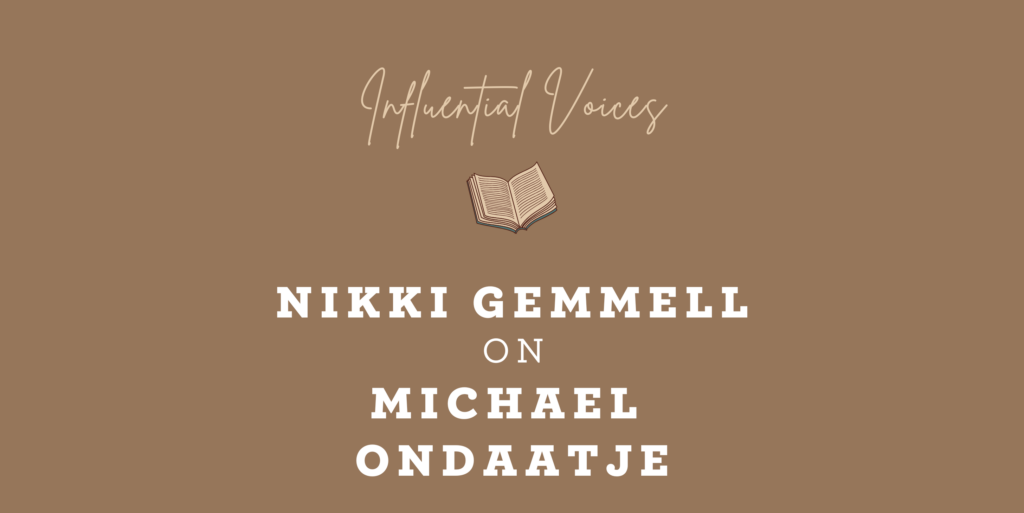
I discovered Michael Ondaatje’s Coming Through Slaughter just as the cement was setting around the idea of making the dream — writing — an actual career (to the horror of my coalminer father, who responded, when hearing of my vaultingly ridiculous ambition, with ‘waste of time, books’.) Ondaatje’s slim, early tome was introduced by a university lecturer, a failed and depleted writer himself, and it entered my world like a depth charge of possibility. I’ve carried my battered Picador paperback around for decades; the pages, now, are almost greasy from being thumbed, flipped, dog-eared and scribbled upon.
What is it? I’m not sure exactly and that’s what makes it so damned exciting. It’s an account. Of the life of jazz musician Buddy Bolden, one of the early proponents of jazz, a cornet player in New Orleans in the early years of the 20th century. Now that’s not an area of interest for me generally, but my God, you’re entranced by this world that Ondaatje creates. It’s a daring, audacious little book that defies categorisation — experimenting with fiction and non-fiction, photography, dialogue, reportage and dramatic changes of tense and voice. Bolden was known for his dazzling improvisations and there’s something of that energy in the style. I always have Ezra Pound’s battle cry close by me as I write — Make It New — and Coming Through Slaughter is the embodiment of that fabulous little aphorism in book form. The aim, as a novelist, is to create something fresh and startling and bold, a new voice, a new way. Risk. Dare. Disturb. ‘For a true writer each book should be a new beginning where he tries again for something that is beyond attainment,’ Ernest Hemingway said in his Nobel acceptance speech, ‘he should always try for something that has never been done or that others have tried and failed.’ And never forget the need to enchant. Draw a curtain around the reader, cosy them in. ‘A book…needs something to say and it needs to know how to say it,’ British editor, Simon Prosser, said. ‘As readers, we want to be flirted with, flattered, gripped, excited, seduced, transported (it’s hard to avoid the language of the erotic).’
This book has been like a prod over the years to not necessarily take the easiest path; to write with energy and honesty and emotional truth. And beauty, always that. It’s also deliciously grubby and vulnerable and ultimately — what all great novels are — moving. Heartbreaking, in fact, and don’t all writers want to conjure up a book that wrenches the heart at some point? It’s taught me several lessons as a writer: the importance of a strong narrative to propel the reader forward; and the need to evoke some kind of empathy with the protagonist. Coming Through Slaughter moves me deeply.
It’s fearless, dangerous writing, something I’m addicted to and aspire to in my own work. Over the years I’ve recognised its soul-tomes in books by Anne Carson, Michel Houellebecq, Marguerite Duras, Dave Eggers, Jonathan Safran Foer and Ali Smith. It intrigues me, now, that it’s an early work by Ondaatje. There’s something so youthful and captivating about the book’s energy — it’s that time when you’re roaring through life, addicted to the new, to risk. I want to keep recapturing that exhilarating, effortless feeling in my own books but it’s so hard, as the years go on, as life closes in around you and you have to think about mortgages and sellable books; about actually making a living out of this crazy, crazy life. But I’ve tried to go back to the fundamentals of its audacious energy with my new book, With My Body.
Mr Ondaatje’s bewitching tome has been like my tuning fork over the years — very different, of course, to my own writing — but Coming Through Slaughter sets the bar in terms of daring and risk-taking. All I need is a paragraph from its deliciously audacious pages to get me in the mood and I’m off and racing.
About the Writer
Nikki Gemmell’s With My Body (Fourth Estate) is out now — a follow-up to The Bride Stripped Bare.
More from Writing NSW
Check out our full range of in-person writing courses in Sydney, our online writing courses and our feedback programs to see how we can help you on your writing journey. Find out about our prizes and opportunities, as well as writing groups across NSW, and sign up to our weekly newsletter for writing events, opportunities and giveaways.
